wikiHow is a “wiki,” similar to Wikipedia, which means that many of our articles are co-written by multiple authors. To create this article, 21 people, some anonymous, worked to edit and improve it over time.
There are 13 references cited in this article, which can be found at the bottom of the page.
This article has been viewed 180,433 times.
Learn more...
Whether you are taking care of an aging parent, or acting as an advocate and caregiver for an elderly person who needs extra support, there are government assistance programs available. Several government agencies at the federal, state, and local levels provide funding and other resources to senior citizens who need help with finances, healthcare, retirement and other issues. Obtain government assistance for elderly people by determining what they need and contacting the proper government agency.
Steps
Determining Appropriate Forms of Assistance
-
1Communicate with the elderly. Unless an elderly person has been diagnosed with a severe cognitive or mental illness, do not assume that you alone can determine their needs. Ask elderly people to express their challenges, hopes, desires, and listen carefully to what they say. Doing so will help you determine which forms of governmental assistance are appropriate.
- Remember to ask elderly people specific questions regarding what would make their lives more fulfilling, independent, financially stable, and safer.
-
2Research available assistance programs. The best source for information is the Administration on Aging (AOA).This agency administers a long list of programs for elders. Their website, www.aoa.gov, lists all of the national services and programs available for elderly people.[1]
- Also visit sites such as www.benefits.gov and www.benefitscheckup.org, [2] which will further help match elders with appropriate services and programs.
Advertisement -
3Investigate what services are available for you. Acting as a caregiver and advocate for an elderly person can be frustrating, time-consuming, and exhausting. It can also be expensive, resulting in missed work and many hours of unpaid labor. Looking after your own health and welfare will enhance your effectiveness as a caregiver and advocate for an elderly person.[3]
- Excellent information is provided by the National Alliance for Caregiving, the Caregiver Action Network, and the Family Caregiver Alliance.
- Visit their respective websites at: www.caregiving.org and www.caregiveraction.org.
Accessing Financial Assistance
-
1Apply for Social Security. This is the most important financial assistance program for the elderly, and one they have been paying into for most of their lives. Social assistance can supplement their income or serve as an elderly person's entire income in the absence of retirement savings. Elderly people may apply for Social Security between the ages of 62 and 70.[4]
- The longer an elderly person waits to apply, the larger their monthly benefit will be.
-
2Apply for the Supplemental Security Income program (SSI). This federal program is funded by general tax revenues and not Social Security taxes. Elders are eligible if the amount of social security they receive is too low to live on, and they have little or no other sources of income available. The program also considers factors such as disability and medical history.
- The Supplemental Security Income program is designed to help cover the cost of food, clothing, and shelter.
- For more information and to determine eligibility, visit https://www.ssa.gov/ssi/.
-
3Access local assistance. Federal programs often mandate that states and local communities help elders and senior citizens access funding and other resources. Look for the local Area Agency on Aging in your city, town, or county. These agencies can connect elders with counselors trained to determine their needs and match them to available programs.For a comprehensive list of Area Agencies on Aging, visit www.agingcare.com/local/Area-Agency-on-Aging.[5] . Some of the cost-saving services these agencies provide include:
- Respite care
- Chore services
- Yardwork and snow removal
- Meals on wheels
- Home repairs and accessibility modifications
- Legal services
- Transportation
-
4Contact the Department of Veteran's Affairs (VA) if applicable. An elderly person who served in the armed services might be eligible for special compensation and assistance. Find out if a service-related disability or medical problem will increase benefits or provide a pension to an elderly veteran who needs government help. Visit www.benefits.va.gov/persona/veteran-elderly.asp.[6]
- The Department of Veteran’s Affairs may provide special pension benefits if an elderly person is bedridden, in a nursing home, or unable to care for themselves.[7]
- Additional benefits may also be provided to elderly veterans unable to leave the immediate premises of their home due to a permanent disability.[8]
Accessing Medical Assistance
-
1Start using Medicare and/or Medicaid. They are government assistance programs that manage healthcare costs for the elderly over age 64. Medicare and Medicaid can be complicated; research which Parts are best suited for the elderly person in question. Part A and B concern hospitalization and physician services, and are the most popular components of coverage. But it is also worth considering Part C and D, which respectively concern supplemental insurance and prescription medication coverage. Visit www.medicare.gov [9] and www.medicaid.gov. [10] to learn more.
- Consider having Medicare premiums deducted from Social Security payments for the elderly person who receives both forms of government assistance.
-
2Get prescription assistance through the Food and Drug Administration (FDA). The FDA can provide assistance to elders by helping to manage their prescriptions.[11] Use the FDA's database to understand safety protocols for different drugs and to ensure you are not mixing drugs that harmfully interact.
- The FDA provides services to help elders who are taking prescription medication appropriately manage their diet, lifestyle, medication schedule, and communications with doctors and pharmacists.
- The FDA also helps seniors find ways to reduce the cost of prescription medications, for example by asking for seniors discounts, buying in bulk, using mail-order services, purchasing generic drug brands, and obtaining samples.[12]
-
3Access state-run medical programs. These are programs such as Medi-Cal in California, Mass Health in Massachusetts, BadgerCare in Wisconsin, and SoonerCare in Oklahoma. Many of these programs are means-tested, so they are only available to low-income people. Programs vary from state to state, so contact your state government for information about eligibility requirements and the specific services available. However, most of these programs provide assistance in areas such as:
- ambulatory patient services
- emergency services
- hospitalization
- mental health and substance abuse treatment
- dental care
- vision care
- long term care
-
4Apply for in-home support services. These services provide extra support so that elderly people can continue to live at home after hospitalization or due to long term disabilities. In-home support services entail regular visits by trained professionals such as registered nurses, physical therapists, and/or direct service workers. Depending on where you live, these services are variously funded by Medicaid, Medicare, or long term insurance -- for more information, visit https://medlineplus.gov/homecareservices.html.[13] Standard in-home support services entail help with:
- Bathing and showering
- Dressing and laundry
- Using the toilet
- Eating and light meal preparation
- Walking and transferring
- Taking and managing medications
- Injections and IVs
- Wheelchairs and mobility devices
-
5Contact the Department of Justice with respect to accessibility and disability issues. Indeed, the Justice Department enforces and provides information about the Americans with Disabilities Act (ADA). Remember that all elderly people are entitled to the reasonable accommodation of their disabilities. Check out the ADA website for information and instructions on how to ensure that elderly people have safe access to places of residence, work, and worship [14]
References
- ↑ https://acl.gov/programs
- ↑ http://www.benefitscheckup.org
- ↑ https://www.aamft.org/Consumer_Updates/Caregiving_for_the_Elderly.aspx
- ↑ https://www.ssa.gov/pubs/EN-05-10147.pdf
- ↑ https://www.agingcare.com/local/Area-Agency-on-Aging
- ↑ http://www.benefits.va.gov/persona/veteran-elderly.asp
- ↑ https://www.myairforcebenefits.us.af.mil/Benefit-Library/Federal-Benefits/VA-Aid-and-Attendance-(AandA)-and-Housebound-Pension-Benefits?serv=27
- ↑ http://www.benefits.va.gov/persona/veteran-elderly.asp
- ↑ https://www.medicare.gov/
Community Q&A
-
QuestionCan I get paid for taking care of my mother full time?
 Community AnswerThat depends on the state that you are living in. Contact your Department of Human Services and see if she qualifies for any state-assisted services. If she does, you may apply to become her mandated paid caregiver.
Community AnswerThat depends on the state that you are living in. Contact your Department of Human Services and see if she qualifies for any state-assisted services. If she does, you may apply to become her mandated paid caregiver. -
QuestionIs my mother, aged 80, eligible for help?
 Community AnswerI am 81 and have received help for some years. It all depends upon personal circumstances. If she owns property, or has savings or other assets, it could be difficult.
Community AnswerI am 81 and have received help for some years. It all depends upon personal circumstances. If she owns property, or has savings or other assets, it could be difficult. -
QuestionWhat help is available for low vision? Am I eligible for SSI?
 Community AnswerContact 311 in your area to find out more about what government programs are available in your community for people with low vision and to determine if you are eligible for social security.
Community AnswerContact 311 in your area to find out more about what government programs are available in your community for people with low vision and to determine if you are eligible for social security.
About This Article
Government assistance for the elderly is available for people 65 and older. It can provide in-home medical support services, financial support, and meals among other things. If you're unsure where to start, you can apply for Medicare or Medicaid on their website. You can also contact your state government for information about eligibility requirements and services available for state-run programs. If you need support with finances, apply for social security or Supplemental Security Income online. If you're still confused about your options, visit your local Area Agency on Aging, which can help match you to programs that suit your needs. For more tips, including how to get help with accessibility for the elderly, read on.



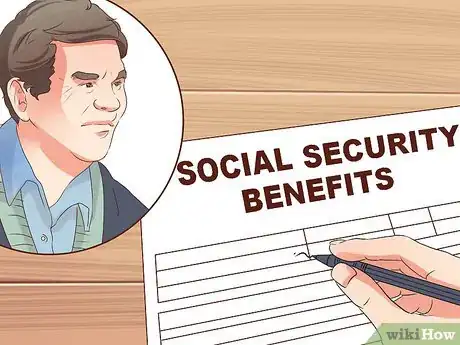

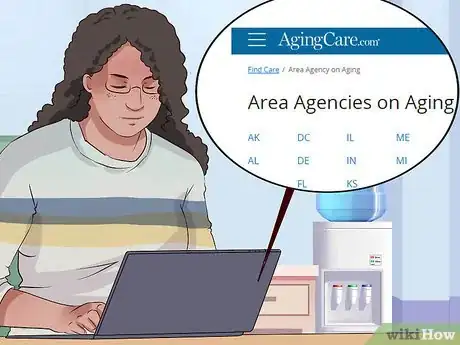
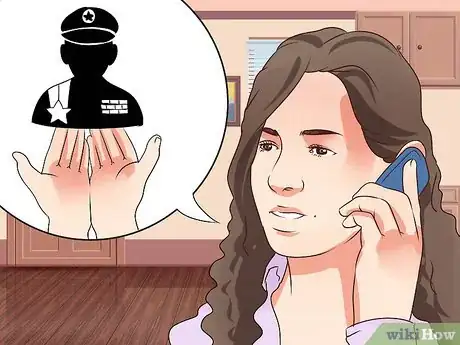
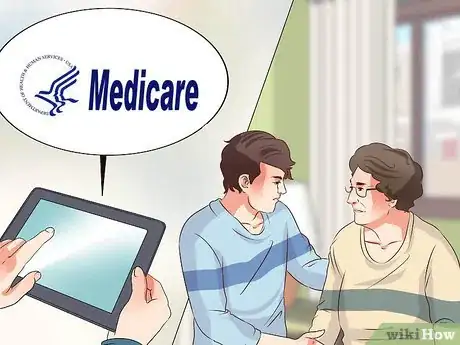
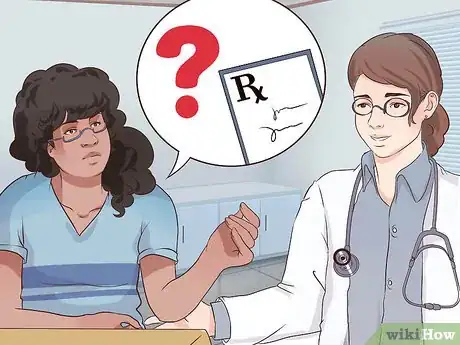


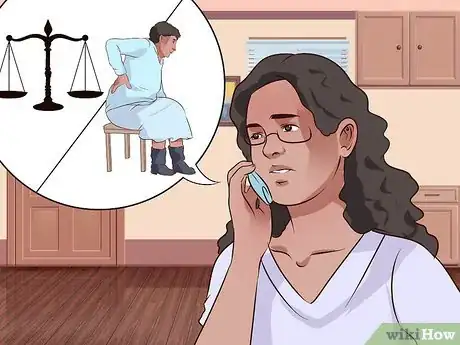
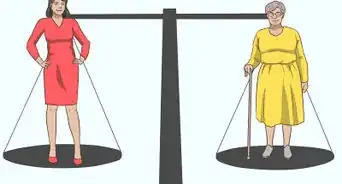
















































Medical Disclaimer
The content of this article is not intended to be a substitute for professional medical advice, examination, diagnosis, or treatment. You should always contact your doctor or other qualified healthcare professional before starting, changing, or stopping any kind of health treatment.
Read More...